Items filtered by date: October 2023
The Discomfort of Arthritis in the Feet
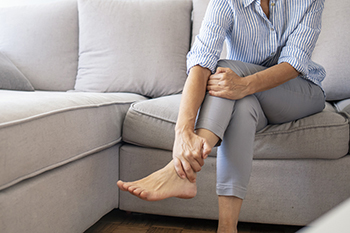
Arthritis, a debilitating condition affecting millions of people across the globe, often makes its presence felt most acutely in the feet. For those who suffer from foot arthritis, every step can be a reminder of the persistent discomfort and pain they endure. The sensation is similar to walking on a bed of nails, or with each step, having sharp, stabbing sensations coursing through the soles. Arthritis does not discriminate, and it can affect any joint in the foot, from the toes to the ankle. Morning stiffness and joint swelling are common symptoms for those with foot arthritis, making the mere act of getting out of bed an ordeal. Activities that once brought joy, such as walking, running, or even standing, can become agonizing challenges. It is not just physical; foot arthritis can have a profound emotional toll, as it limits mobility, independence, and one's overall quality of life. Living with arthritis in the feet can be a daily struggle. If you have this affliction, it is suggested that you are under the care of a podiatrist who can help you manage foot arthritis.
Arthritis can be a difficult condition to live with. If you are seeking treatment, contact Dr. Kevin Davis from Davis Foot & Ankle Centers. Our doctor can provide the care you need to keep you pain-free and on your feet.
Arthritic Foot Care
Arthritis is a joint disorder that involves the inflammation of different joints in your body, such as those in your feet. Arthritis is often caused by a degenerative joint disease and causes mild to severe pain in all affected areas. In addition to this, swelling and stiffness in the affected joints can also be a common symptom of arthritis.
In many cases, wearing ill-fitting shoes can worsen the effects and pain of arthritis. Wearing shoes that have a lower heel and extra room can help your feet feel more comfortable. In cases of rheumatoid arthritis, the arch in your foot may become problematic. Buying shoes with proper arch support that contour to your feet can help immensely.
Alleviating Arthritic Pain
- Exercises that stretch the foot can prevent further pain and injury and increase mobility
- Most of the pain can be alleviated with anti-inflammatory drugs, heat, and topical medications
- Massages can help temporarily alleviate pain.
It is best to see your doctor for the treatment that is right for your needs and symptoms. Conditions vary, and a podiatrist can help you determine the right method of care for your feet.
If you have any questions, please feel free to contact our office located in Springfield, TN . We offer the newest diagnostic tools and technology to treat your foot and ankle needs.
Home Preparations to Protect the Elderly From Falls
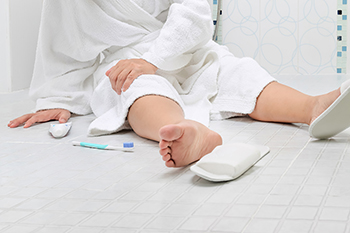
As we age, it is helpful for our homes to be a sanctuary of comfort and safety. For the elderly, preventing falls is paramount to maintaining independence and overall well-being. Simple yet effective home preparations can make a world of difference. This can begin by decluttering living spaces and removing tripping hazards like loose rugs or cords. Install handrails and grab bars in bathrooms and along staircases to provide stability. Adequate lighting is important, ensuring that every corner is well-lit, regardless of day or night. Non-slip mats in the bathroom and a shower chair can reduce the risk of slips and falls during bathing. Regular maintenance is essential, so fix unstable floorboards, uneven tiles, or loose handrails promptly. Falling can seriously affect the feet, and may lead to difficulty in accomplishing daily activities. If you would like more information about how to protect your elderly loved ones from falling in the household, it is suggested that you confer with a podiatrist who can offer you additional effective fall-prevention tips.
Preventing falls among the elderly is very important. If you are older and have fallen or fear that you are prone to falling, consult with Dr. Kevin Davis from Davis Foot & Ankle Centers. Our doctor will assess your condition and provide you with quality advice and care.
Every 11 seconds, an elderly American is being treated in an emergency room for a fall related injury. Falls are the leading cause of head and hip injuries for those 65 and older. Due to decreases in strength, balance, senses, and lack of awareness, elderly persons are very susceptible to falling. Thankfully, there are a number of things older persons can do to prevent falls.
How to Prevent Falls
Some effective methods that older persons can do to prevent falls include:
- Enrolling in strength and balance exercise program to increase balance and strength
- Periodically having your sight and hearing checked
- Discuss any medications you have with a doctor to see if it increases the risk of falling
- Clearing the house of falling hazards and installing devices like grab bars and railings
- Utilizing a walker or cane
- Wearing shoes that provide good support and cushioning
- Talking to family members about falling and increasing awareness
Falling can be a traumatic and embarrassing experience for elderly persons; this can make them less willing to leave the house, and less willing to talk to someone about their fears of falling. Doing such things, however, will increase the likelihood of tripping or losing one’s balance. Knowing the causes of falling and how to prevent them is the best way to mitigate the risk of serious injury.
If you have any questions, please feel free to contact our office located in Springfield, TN . We offer the newest diagnostic and treatment technologies for all your foot care needs.
Definition and Risk Factors of Peripheral Artery Disease
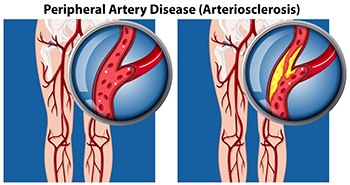
Peripheral artery disease, or PAD, is a common circulatory condition characterized by narrowed arteries in the limbs, primarily the legs, due to the buildup of plaque. While PAD can affect anyone, certain risk factors increase its likelihood. Age is a significant factor, as the risk of PAD increases with advancing years. Smoking, a well-known risk factor, significantly accelerates the development of PAD. Diabetes, high blood pressure, and high cholesterol levels also contribute to arterial narrowing, making individuals with these conditions more susceptible. A family history of vascular disease may indicate a genetic predisposition. Lifestyle choices, such as a sedentary lifestyle and a diet high in saturated fats, can exacerbate PAD risk factors. Understanding these risk factors is crucial because PAD can lead to serious complications such as reduced mobility and non-healing ulcers, in addition to an increased risk of heart attack and stroke. Early detection and management, through lifestyle modifications and medical interventions, can help mitigate these risks and improve overall vascular health. If you suspect you may have PAD or have multiple risk factors, it is suggested that you consult a podiatrist for evaluation and guidance.
Peripheral artery disease can pose a serious risk to your health. It can increase the risk of stroke and heart attack. If you have symptoms of peripheral artery disease, consult with Dr. Kevin Davis from Davis Foot & Ankle Centers. Our doctor will assess your condition and provide you with quality foot and ankle treatment.
Peripheral artery disease (PAD) is when arteries are constricted due to plaque (fatty deposits) build-up. This results in less blood flow to the legs and other extremities. The main cause of PAD is atherosclerosis, in which plaque builds up in the arteries.
Symptoms
Symptoms of PAD include:
- Claudication (leg pain from walking)
- Numbness in legs
- Decrease in growth of leg hair and toenails
- Paleness of the skin
- Erectile dysfunction
- Sores and wounds on legs and feet that won’t heal
- Coldness in one leg
It is important to note that a majority of individuals never show any symptoms of PAD.
Diagnosis
While PAD occurs in the legs and arteries, Podiatrists can diagnose PAD. Podiatrists utilize a test called an ankle-brachial index (ABI). An ABI test compares blood pressure in your arm to you ankle to see if any abnormality occurs. Ultrasound and imaging devices may also be used.
Treatment
Fortunately, lifestyle changes such as maintaining a healthy diet, exercising, managing cholesterol and blood sugar levels, and quitting smoking, can all treat PAD. Medications that prevent clots from occurring can be prescribed. Finally, in some cases, surgery may be recommended.
If you have any questions, please feel free to contact our office located in Springfield, TN . We offer the newest diagnostic and treatment technologies for all your foot care needs.
Arthritis Can Cause Pain in the Feet and Ankles
Definition and Common Symptoms of Heel Spurs
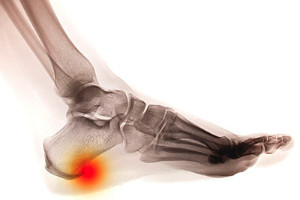
Heel spurs often misconstrued as a painful condition on their own, are actually bony growths that develop on the underside of the heel bone. Heel spurs develop in response to prolonged stress on the plantar fascia, a thick band of tissue that runs along the bottom of the foot. This continuous stress can lead to the formation of calcium deposits, resulting in the characteristic bony protrusions. The most common symptom of heel spurs is sharp, stabbing pain in the heel, typically upon standing or walking, especially in the morning or after periods of rest. The pain is often described as localized and can radiate along the arch of the foot. It is important to note that not everyone with heel spurs experiences pain. In some cases, they are detected incidentally during X-rays taken for other foot-related issues. Treatment options may include rest, stretching exercises, orthotic devices, or, in severe cases, medical interventions to alleviate pain and improve foot function. If you suspect you have heel spurs and are experiencing persistent heel pain, it is suggested that you consult a podiatrist for a proper diagnosis and personalized treatment plan.
Heel spurs can be incredibly painful and sometimes may make you unable to participate in physical activities. To get medical care for your heel spurs, contact Dr. Kevin Davis from Davis Foot & Ankle Centers. Our doctor will do everything possible to treat your condition.
Heels Spurs
Heel spurs are formed by calcium deposits on the back of the foot where the heel is. This can also be caused by small fragments of bone breaking off one section of the foot, attaching onto the back of the foot. Heel spurs can also be bone growth on the back of the foot and may grow in the direction of the arch of the foot.
Older individuals usually suffer from heel spurs and pain sometimes intensifies with age. One of the main condition's spurs are related to is plantar fasciitis.
Pain
The pain associated with spurs is often because of weight placed on the feet. When someone is walking, their entire weight is concentrated on the feet. Bone spurs then have the tendency to affect other bones and tissues around the foot. As the pain continues, the feet will become tender and sensitive over time.
Treatments
There are many ways to treat heel spurs. If one is suffering from heel spurs in conjunction with pain, there are several methods for healing. Medication, surgery, and herbal care are some options.
If you have any questions feel free to contact our office located in Springfield, TN . We offer the latest in diagnostic and treatment technology to meet your needs.
Foot Pain and Pregnancy
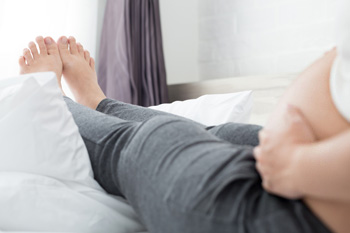
Pregnancy is usually an event that is looked forward to with anticipation and excitement. However, it is also a time where many changes take place in a woman’s body and some of them are challenging. For example, pregnancy can lead to changes in foot anatomy, potentially increasing the risk of foot pain and musculoskeletal issues. It has been found that orthotics can help to prevent back pain and arch collapse during pregnancy. Orthotics are designed to absorb shock, increase stability, and reduce extra movement that can aggravate pain. These, along with wearing supportive, well-fitting shoes, can provide relief. If you are pregnant and enduring foot or related pain, it is suggested that you make an appointment with a podiatrist who can help you to find ways to get through these common discomforts more comfortably.
Pregnant women with swollen feet can be treated with a variety of different methods that are readily available. For more information about other cures for swollen feet during pregnancy, consult with Dr. Kevin Davis from Davis Foot & Ankle Centers. Our doctor will attend to all of your foot and ankle needs.
What Foot Problems Can Arise During Pregnancy?
One problem that can occur is overpronation, which occurs when the arch of the foot flattens and tends to roll inward. This can cause pain and discomfort in your heels while you’re walking or even just standing up, trying to support your baby.
Another problem is edema, or swelling in the extremities. This often affects the feet during pregnancy but tends to occur in the later stages.
How Can I Keep My Feet Healthy During Pregnancy?
- Wearing orthotics can provide extra support for the feet and help distribute weight evenly
- Minimize the amount of time spent walking barefoot
- Wear shoes with good arch support
- Wear shoes that allow for good circulation to the feet
- Elevate feet if you experience swelling
- Massage your feet
- Get regular, light exercise, such as walking, to promote blood circulation to the feet
If you have any questions please feel free to contact our office located in Springfield, TN . We offer the newest diagnostic and treatment technologies for all your foot and ankle needs.

